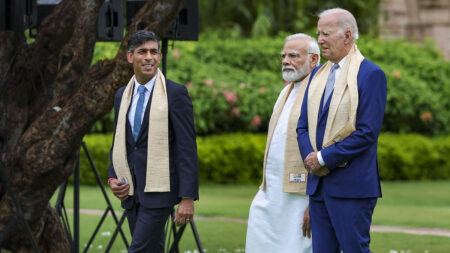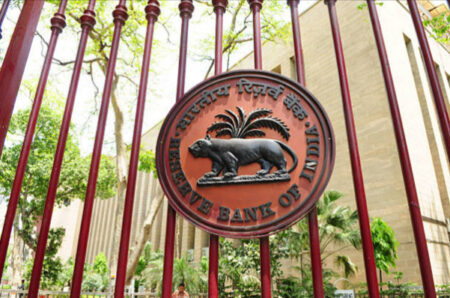A warrant was issued for the arrest of Chitra Ramkrishna, the former CEO of the National Stock Exchange (NSE), by the Central Bureau of Investigation (CBI) late Sunday evening in connection with the ongoing investigation into the NSE co-location scandal.
She was apprehended in Delhi and is scheduled to appear in a local court on Monday, according to the police department. The agency will file a petition with a local court to have her detained and interrogated.
On Saturday, a special CBI court denied anticipatory bail to the former head of the National Stock Exchange. Because the charges against Ramkrishna are “grave and serious,” a CBI court had refused to grant her protection from arrest, stating that the charges against him were “grave and serious.”
Specifically, the former NSE CEO “introduced a non-existent person in order to mislead the investigating agency, which may also demonstrate her collusion in the matter prima facie,” according to the Court.
Ramkrishna will be confronted by the CBI with her former advisor Anand Subramanian, who is already in custody of the agency, according to sources familiar with the situation.
An order issued by the Securities and Exchange Board of India (Sebi) on February 11 stated that Ramkrishna exchanged unauthorised emails containing confidential information with an unidentified individual known only as a “yogi.”
The National Stock Exchange of India (NSE) is the country’s largest stock exchange. Judge Sanjeev Aggarwal dismissed Ramkrishna’s appeal on Saturday, saying, “It cannot be asserted prima facie at this stage that Ramkrishna’s role is not under investigation.
” As a result of the fact that Anand Subramanian was appointed without due process and at an exorbitant salary, it is possible that they were all working together to carry out or further the co-location scam’s objectives.
The NSE co-location case arose out of allegations that certain entities were given unfair and preferential access to NSE co-location facilities in 2012-14. Following the Sebi order issued on February 11, which detailed email exchanges between Ramkrishna and the so-called mystic, many of which contained confidential information and pleaded for Subramanian’s continued advancement despite his apparent lack of qualifications, interest in the case was reignited once again.
A large number of former government officials have been interrogated. The CBI and the market regulator were both reprimanded by the court for the manner in which their investigations were carried out.
“To put it mildly, the CBI appears to be apathetic to say the least, as no action appears to have been taken against the primary beneficiaries of the current co-location scam and others for nearly four years, who appear to be merrily enjoying themselves at the expense of the general public for reasons best known to themselves,” the agency claimed.
“Furthermore, even the Securities and Exchange Board of India (Sebi), despite its role as a capital market regulator, has been far too kind and gentle… Throughout this time, the Sebi has refrained from bringing criminal charges against the individuals involved.”
When Ramkrishna filed her petition, the CBI objected, telling the court that it needed her custody in order to “dig out the truth” and that it wished to “confront” her with Subramanian.
The agency informed the court that it had searched Ramkrishna’s home on February 24 and seized a number of items, including her mobile phone and laptop, during the search. Ramkrishna was interrogated on the 18th, 19th, and 22nd of February.
According to the CBI, a senior forensic psychologist who was present during the interview stated that she was evasive in her answers. Ramkrishna’s senior attorney, Dayan Krishnan, argued on her behalf that she was neither named nor assigned any role in the case’s initial information report (FIR), which was filed by the CBI in May 2018.
Additionally, it was argued that she had not been summoned for questioning in the case in the four years prior to her deposition in the case. Private conversations, according to Ramkrishna, had no bearing on her performance, and she stated that she intends to pursue “appropriate legal remedies” against the Sebi decision.
In addition, she stated that, as a result of the Sebi order, “undue public pressure is being exerted on the investigating agencies through the media.” When asked about the allegedly exorbitant salary paid to Subramanian, Ramkrishna stated that it was a “corporate governance” issue unrelated to the NSE co-location case under investigation by the Central Bureau of Investigation.
She stated that after learning of Subramanian’s arrest, she felt “compelled” to file an anticipatory bail application for her husband. The court found it difficult to believe that officials from the NSE were completely unaware of what was taking place.
This type of co-location swindle, the court found, “could not have occurred without the knowledge and active cooperation of all functional heads of the NSE at the relevant time,” according to the court’s findings.
“This period can be characterised as a dark period in the history of the NSE.” It is highly likely that she will exert influence over and tamper with the evidence, given her previous prominence in the NSE.
In addition to noting that “there are numerous facets to investigations that must be excavated by the investigating agency after the dust has settled,” the court stated that “the magnitude of the present case may be enormous, as a result of this financial skulduggery, enormous loss may have been caused to adherent stockbrokers, institutional investors, foreign institutional investors, and honest investors, whose faith in this premier financial institution, i.e. the NSE, may have been betrayed.”
Because of the NSE’s significance to India’s financial system, the court determined that a different approach is required in this case.
Published By – Damandeep Singh
Edited By-Kritika Kashyap













